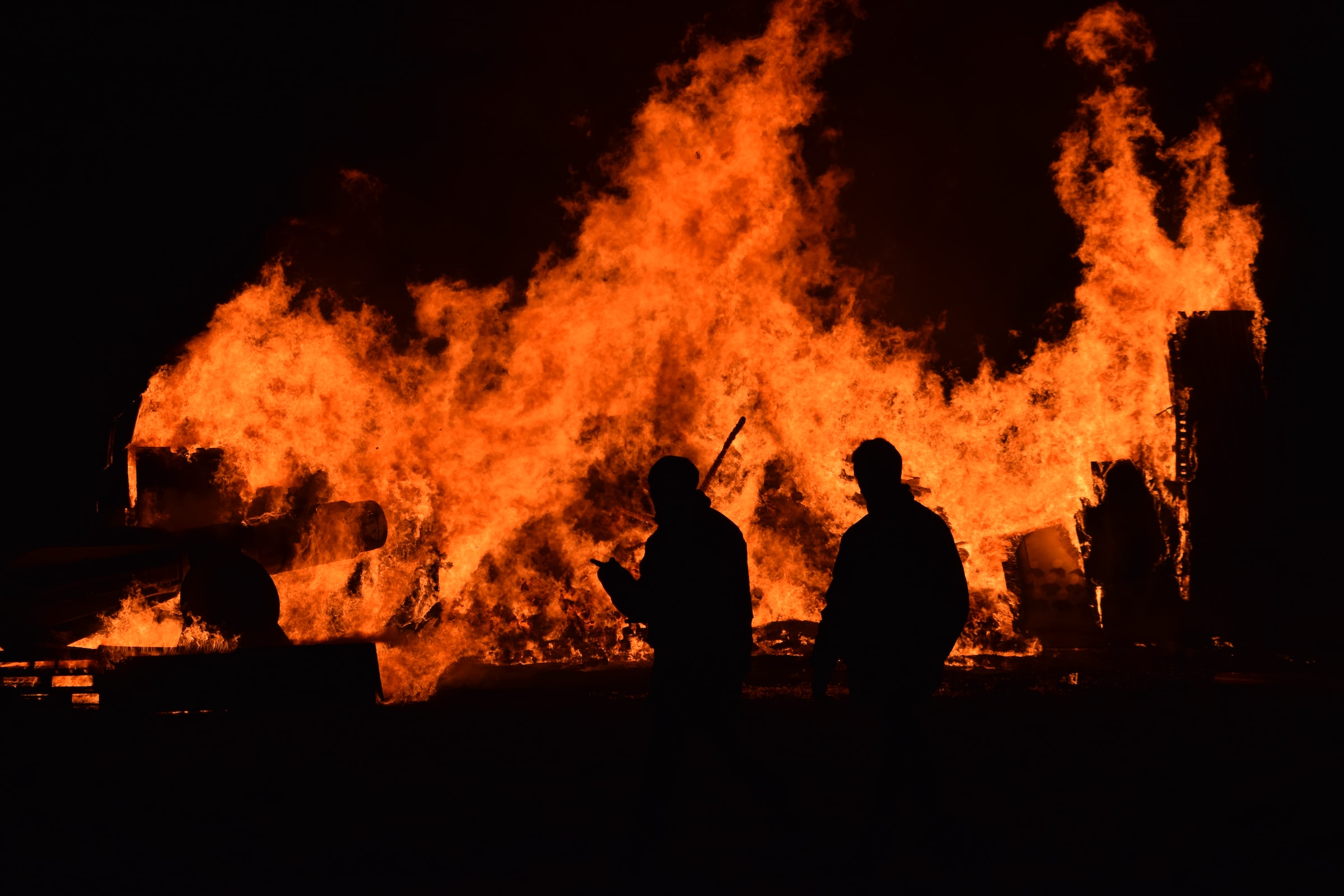The UK’s capability to effectively combat wildfires has come under scrutiny following a report by the Fire Brigades Union (FBU), which suggests that the nation is “woefully underprepared” for the increasing challenges posed by climate change.
According to recent government figures, the nation grappled with over 44,000 wildfires in the last year. This indicates a staggering 72% increase compared to the year prior. Despite such alarming statistics, union leaders claim that both the government and the National Fire Chiefs Council (NFCC) have been remiss in formulating a comprehensive national strategy to address the escalating wildfire crisis.
Climate Change: A Burning Issue
The Intergovernmental Panel on Climate Change (IPCC), the UN’s climate body, has pointed out the undeniable link between climate change and heightened wildfire risks. With prolonged heatwaves, like the one witnessed in the UK during the summer of 2022, the soil and vegetation become progressively drier, setting the stage for wildfires.
Matt Wrack, the FBU’s general secretary, voiced concerns over the nation’s readiness, stating, “We need urgent climate action. The fire and rescue service requires substantial investment to effectively safeguard life and property against wildfires. This translates to enhanced equipment, superior training, and better coordination, backed by rigorous research and planning.”

We do not have another world
Strain on Fire Services
One of the primary concerns raised by the FBU report is the understaffing of fire services. This has reportedly led to fire engines remaining unutilised and off-duty staff being summoned for additional shifts. Many firefighters, while on duty, faced extreme exhaustion.
Since 2010, the report estimates a reduction of 12,000 firefighter jobs. This alarming decline in staffing levels was felt in July 2022 when London experienced widespread wildfires. According to a major incident review made available after a BBC Freedom of Information request, firefighter shortages rendered 39 fire engines unavailable.
Wildfires Breaching Urban Boundaries
Recent wildfire incidents have not remained confined to rural spaces. There has been an uptick in fires at the “urban-rural interface”, posing threats to residential areas. In a concerning event on 19 July 2022, approximately 95 structures, which included 16 residences in Wennington, London borough of Havering, were razed.

The FBU’s Call to Action
The FBU is advocating for a nationwide wildfire strategy that defines national standards for fire and rescue services. Their report criticises the current “postcode lottery of wildfire response” and urges improved recruitment in rural sectors, better training, increased crew numbers, and advancements in Personal Protective Equipment (PPE).
The Home Office, in response, highlighted that fire and rescue authorities would receive £2.6 billion for the financial year 2023/24. However, it’s up to each authority to determine the allocation of these funds. Moreover, every authority must possess a strategic plan addressing potential risks in their jurisdictions, including wildfires.
While the NFCC conveyed pride in the UK firefighters’ exemplary efforts, they emphasised the necessity for future funding decisions to reflect evolving risks, such as climate change-induced wildfires.
In Conclusion
The surge in wildfires is a clear manifestation of the multifaceted challenges posed by climate change. The FBU’s report underscores the urgency for robust, coordinated efforts to bolster the nation’s wildfire response mechanisms. As the UK braces itself for an uncertain climatic future, the need for proactive strategies, bolstered by sound investments in personnel and infrastructure, has never been more pressing.
©globalgreenhouse.eu

